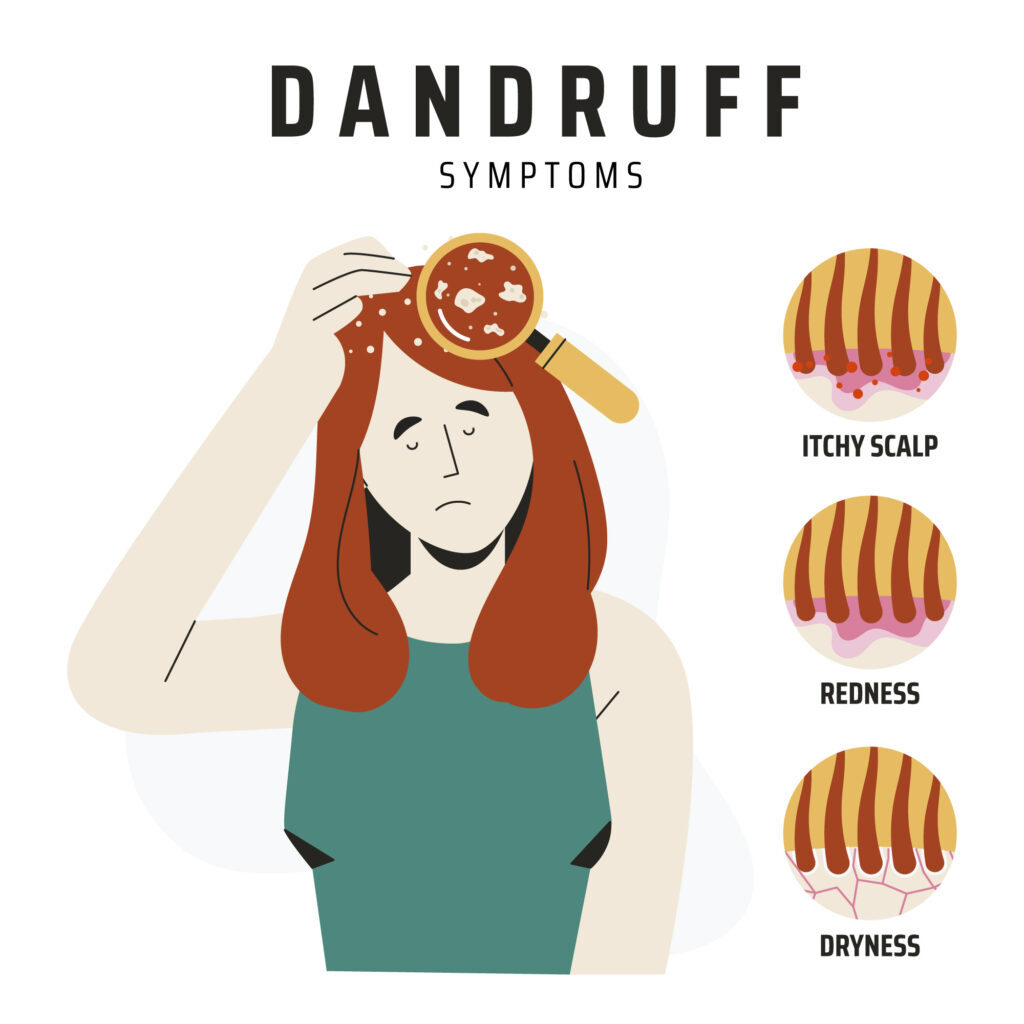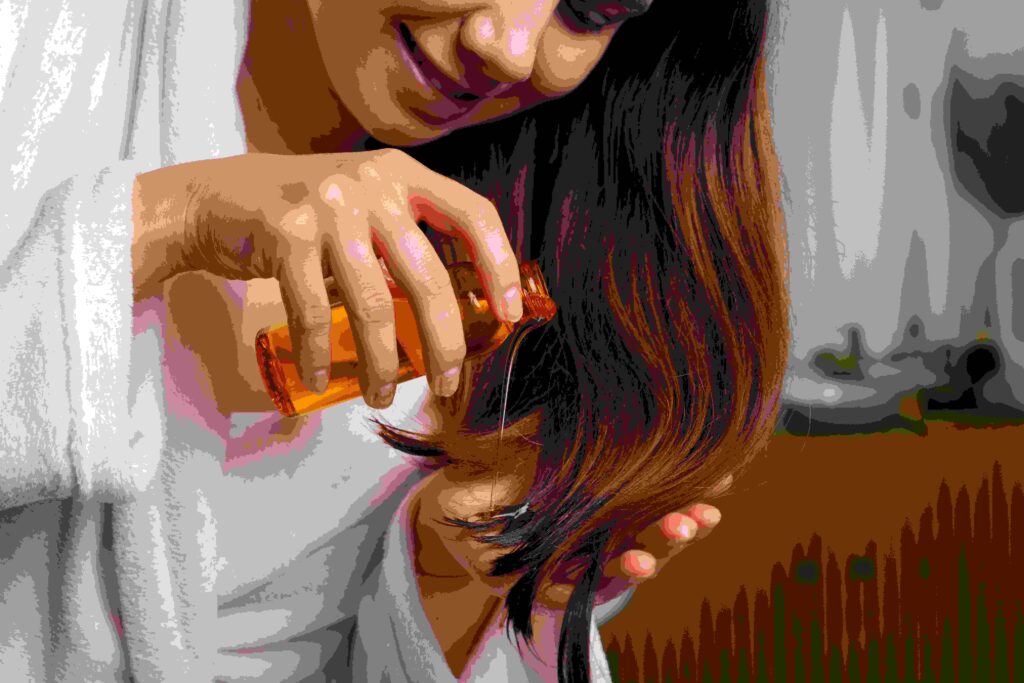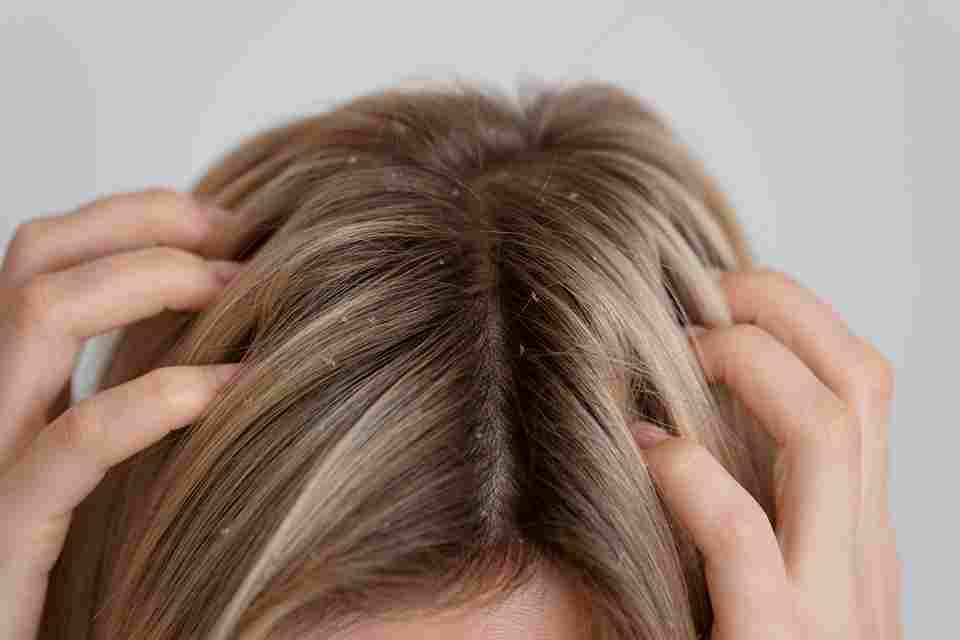Are you worried about how your diet can affect the scalp and lead to itchy and flaky skin? Read this blog to learn how diet and dandruff are related.
What is Dandruff?
Dandruff is a common scalp condition, also known as Darunak in Ayurvedic medicine. In this hair problem, dry skin sheds from the scalp, leading to itchiness and irritation. Most people experience dandruff at some point in their lives. The symptoms, such as skin flakes usually visible on scalps and shoulders, redness and itching of the scalp, and hair changes, can be easily seen in people with dandruff. Signs and symptoms can usually vary from person to person and depend on their diet and lifestyle.

What causes Dandruff?
Dandruff is usually caused by dry skin or the buildup of oil. However, many other factors can lead to the production of itchy flakes on your scalp, which are discussed below:
- Shampooing habits
- Age
- Weak immune system
- Oily skin
- History of skin disorders
- Weather
- Hair products
- Stress

How Does Nutrition Affect Scalp Health?
According to Ayurveda, imbalances in the body’s three doshas (Vata, Pitta, and Kapha) can be the reason for various health conditions and skin problems such as dandruff.
It is a truth that diet and dandruff are interlinked, and nutrition plays a very important role in maintaining scalp health.
An unhealthy diet in which essential vitamins like A, C, and E and minerals including zinc, iron, and protein are lacking can cause various health and scalp-related problems.
Here’s how nutrition is crucial for your hair and scalp health:
Nourishment for hair follicles
By having the proper amount of nutrition in your diet, you can help the hair follicles receive the necessary nutrients that support and maintain healthy hair tissue growth. Nutrients such as vitamins A, C, and E and other minerals, including zinc and iron, are essential to lessen scalp problems like dandruff.
Oil production and moisture balance

The sebaceous glands present in the hair are responsible for producing natural oils to provide moisture to the hair and the scalp. For the proper functioning of these glands, it is important to support them through a balanced diet rich in essential fatty acids.
If there is an imbalance in the moisture level of the scalp, such as dryness and excessive oiling, it can lead to dandruff.
Scalp circulation

Scalp circulation is crucial as it delivers essential nutrients to the hair follicles and removes waste products. To maintain healthy blood flow to the scalp, vitamin B is needed, and improved circulation also promotes hair growth.
Inflammation and reduction
Chronic inflammation on the scalp can lead to various scalp conditions such as dandruff, eczema, and psoriasis. Consuming a healthy diet with foods rich in omega-3 fatty acids and antioxidants can help reduce the risk of scalp issues. These nutrients are known for their anti-inflammatory properties.
The Best Foods to Boost Your Scalp’s Health and Control Dandruff
- Include healthy fats.
Try to include healthy fats in your diet to control oil production and help prevent dandruff. Foods such as salmon, tuna fish, flaxseeds, peanut butter, and walnuts are the best options for foods rich in omega-3 and omega-6 fatty acids.
- Reduce hot and spicy foods.
To maintain the balance of doshas, you should avoid fried, spicy, and overly acidic foods, as they can lead to a flaky scalp.
- Consume fresh fruits and vegetables.
Fresh fruits and vegetables have a cooling effect on the body and are loaded with nutrition and fibre.

- Limit sugar
Sugar might promote inflammation in our body; therefore, it is advised to minimise eating sugary products. By eating a low-sugar, antioxidant-rich diet, you can control dandruff flares. - Stay hydrated
Being hydrated throughout the day is very necessary to prevent dryness and support healthy skin.

CONCLUSION
Dandruff is one of the common skin conditions that can occur because of various external and internal factors such as weather, using different hair care products, washing less or more, and diet.
Among these, diet plays an important role, as diet and dandruff have a direct impact on the health of your scalp and hair.
By consuming fresh fruits and vegetables, limiting sugar, and staying hydrated, you can lessen the possibility of the development of dandruff.
It is important to consult your healthcare provider for effective treatment and management of your hair problems.
Ayursparsh Clinic and Panchakarma Center in Dharwad, Karnataka, is renowned for treating many hair and scalp conditions.
Want to receive personalized advice for your hair problems? Do consult Dr Rashmi C. Patil, MD (Ayu), to manage your scalp-related issues.




